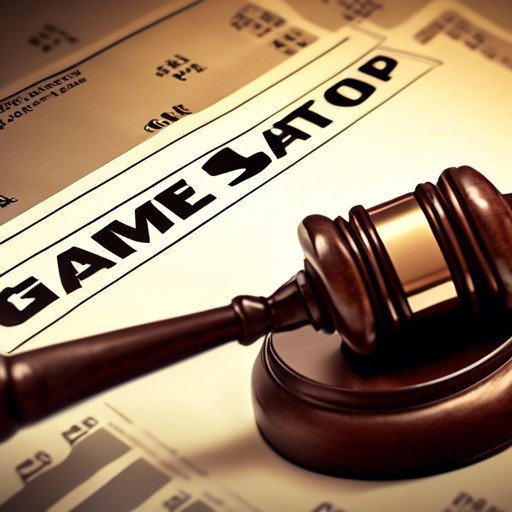A class-action lawsuit has been filed targeting Keith Gill over alleged GameStop securities fraud, as investors seek to hold the popular Reddit trader accountable for his role in the stock’s dramatic rise and fall. The lawsuit alleges that Gill, also known as “Roaring Kitty,” misled investors with his bullish statements on GameStop, causing them to suffer significant financial losses. The legal action against Gill is part of a broader effort to hold individuals accountable for their actions in the stock market, particularly in the wake of the GameStop frenzy. The lawsuit seeks to recover damages for investors who were allegedly misled by Gill’s statements and suffered losses as a result of his alleged securities fraud.
A legal action has been initiated against Keith Gill for his alleged involvement in GameStop securities fraud, as investors aim to address the impact of his actions during the stock’s volatile trading period. The lawsuit accuses Gill, also known as “Roaring Kitty,” of making misleading statements that led to substantial financial losses for investors who followed his advice on GameStop. This legal move is part of a larger effort to ensure accountability for individuals’ actions in the financial market, particularly in light of the GameStop frenzy. The lawsuit’s objective is to seek compensation for investors who were allegedly deceived by Gill’s statements and suffered financial setbacks due to his purported securities fraud.
Class-Action Complaint Against Keith Gill
Keith Gill, the stock trader who gained notoriety during the GameStop short squeeze, is facing a class-action complaint alleging securities fraud. The lawsuit, filed in the Eastern District of New York United States District Court, accuses Gill of engaging in a “pump and dump” scheme through a series of social media posts. The complaint claims that Gill failed to provide sufficient disclosure regarding the acquisition and sale of his GameStop options calls, leading to potential losses for investors.
The plaintiff, represented by the legal firm Pomerantz, alleges that he suffered harm as a result of the alleged “pump and dump” after purchasing GameStop shares and call options. The lawsuit points to Gill’s social media posts, particularly a series of mysterious memes, as the catalyst for a significant increase in the price of GameStop shares. Additionally, the complaint highlights Gill’s disclosure of a sizable stake in GameStop and subsequent gains from the sale of option calls as factors contributing to the alleged securities fraud.
However, a former federal prosecutor has expressed skepticism about the viability of the class-action lawsuit, stating that it is likely “doomed from its inception.” The prosecutor argues that the lawsuit faces significant challenges in establishing that Gill purposefully deceived investors and withheld vital information. Furthermore, the prosecutor questions the expectation that Gill should have disclosed his intention to sell his options calls in advance, emphasizing the difficulty of establishing a case based on social media posts that do not contain independently verifiable facts.
Legal Analysis of the Lawsuit
The class-action lawsuit against Keith Gill raises complex legal questions regarding securities fraud and the disclosure of information by market participants. The lawsuit’s central claim of a “pump and dump” scheme orchestrated through social media posts challenges the traditional understanding of securities fraud and the responsibilities of individuals like Gill in disclosing their investment activities.
Legal experts have expressed doubts about the lawsuit’s prospects, citing the difficulty of establishing fraudulent intent based on social media content and the expectations placed on individuals to disclose their investment strategies. The argument that Gill should have disclosed his intention to sell his options calls in advance faces scrutiny, as it raises questions about the reasonable expectations of investors and the verifiability of information shared on social media platforms.
Furthermore, the lawsuit’s reliance on the impact of Gill’s social media posts on the price of GameStop shares introduces complexities in determining the causal relationship between the posts and investor behavior. The legal analysis of the lawsuit underscores the challenges of prosecuting securities fraud cases based on social media communications and the need to establish clear standards for disclosure and accountability in the digital age.
| Defendant | Keith Gill |
|---|---|
| Allegations | Securities Fraud related to GameStop stock |
| Legal Action | Class-Action Lawsuit |
| Plaintiffs | Investors affected by GameStop stock fluctuations |
RESULT
The class-action lawsuit targets Keith Gill over alleged GameStop securities fraud. The lawsuit alleges that Gill, also known as “Roaring Kitty” on social media, misled investors about the prospects of GameStop stock, leading to financial losses for the plaintiffs. The legal action seeks to hold Gill accountable for his alleged role in the stock’s volatility and the resulting harm to investors.



